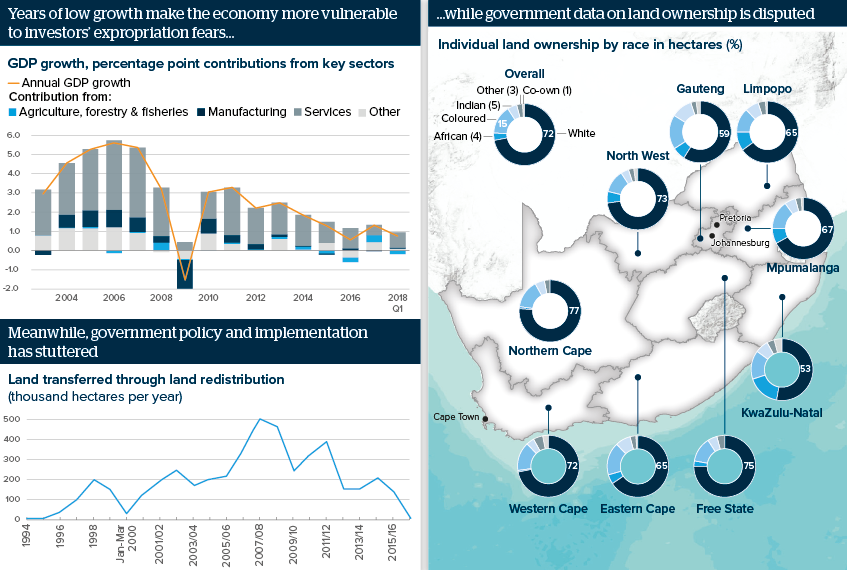South African land reform will weigh on Ramaphosa
Controversial land expropriation proposals are bitterly divisive
Source: SA Department of Rural Development and Land Reform, Agri SA, PLAAS (Institute for Poverty, Land and Agrarian Studies), The High Level Panel on the Assessment of Key Legislation and the Acceleration of Fundamental Change (HLP), Bloomberg
Outlook
President Cyril Ramaphosa on June 7 told the Afrikanerbond, a grouping of ethnic Afrikaners, that they should endorse land reform for the good of the nation. Ramaphosa has sought to reassure investors and white farmers that the ruling ANC’s support for ‘land expropriation without compensation’ will not mean wholesale land grabs, as per neighbouring Zimbabwe.
To try ease such concerns, a recent ANC land summit resolved that the party will ‘test’ Section 25 of the constitution to see if expropriation without compensation can be pursued in certain cases, without the need for controversially amending the constitution.
The ANC government’s redistribution and restitution efforts have lagged for over 20 years since it took office in 1994, while information on land reform is highly contested amid differing (often incomplete) government and independent data. Additionally, it is estimated it will already take the state over 150 years to process current and new restitution claims.
Impacts
- Banks face heightened exposure to more radical policies amid reported agricultural sector debts of 125 billion rand (9.5 billion dollars).
- The government will struggle to find agreed policy solutions ahead of the 2019 polls.
- Budgets for land reform (205 million dollars) and land restitution (259 million dollars) will underwhelm.
- A reopening of land claims in the short-to-medium term could prove a logistical nightmare for the government.
See also
- South African land expropriation fears will persist - Aug 23, 2018
- South Africa's land changes will unsettle investors - Aug 1, 2018
- South African polls could delay substantive reforms - Jun 14, 2018
- Rising South African populism will divide parties - Mar 23, 2018
- More graphic analysis
